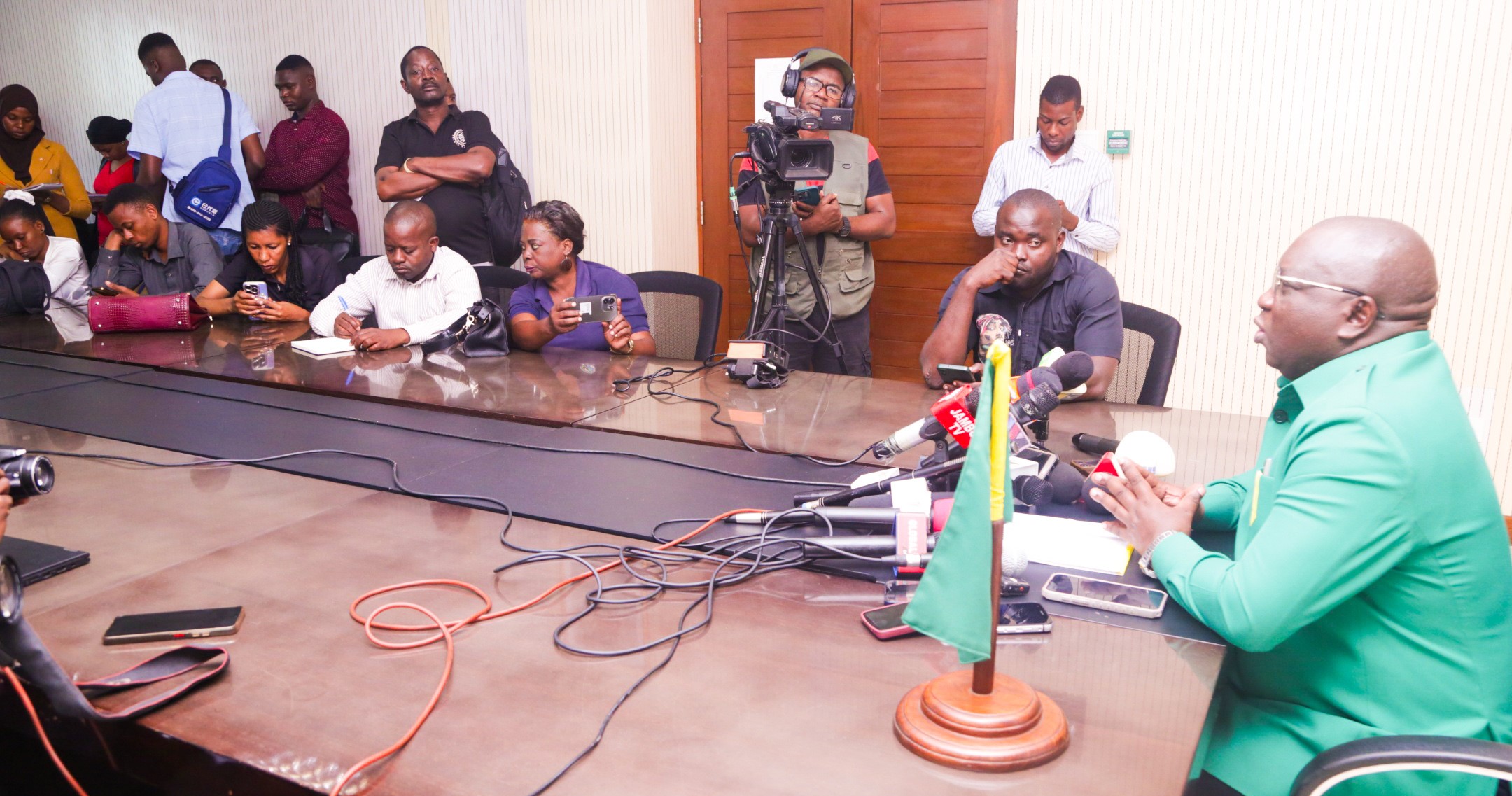Dr Musonda believed in EA trade

Dr Musonda speaks in a past event. She was a strong proponent of regional trade. PHOTO| ZEPHANIA UBWANI
What you need to know:
Silence and disbelief ruled at the Community headquarters for hours that day as workers tried to come to terms with the loss of a staff member.
Arusha. It was a great shock for staff members of the East African Community (EAC) when workers returning from lunch break on October 15, learnt about the untimely death of their colleague Dr Flora Mndeme Musonda, who until her demise was the director of Trade for the regional organisation.
Silence and disbelief ruled at the Community headquarters for hours that day as workers tried to come to terms with the loss of a staff member.
She has been with the Secretariat for slightly over eight years now, mostly involved in trade negotiations both intra-regional and between the bloc and the outside world.
Dr Musonda, who was in her 50s, was an accomplished economist. But as a senior official of the regional organisation at times she could not hide her feelings when she felt they should be made public for the interest of the society or the East Africans in general.
For instance, in August 2005, only months after joining the Community, she confronted President Benjamin Mkapa to explain how the economic bloc would fare with Tanzania being a member of the Southern Africa Development Community (Sadc) while Kenya and Uganda, then the only two other members of EAC belonged to Comesa.
President Mkapa had visited the EAC headquarters to bid them farewell as he was to step down later that year.
The late Musonda had expressed her fears or reservations on members of the EAC belonging to different trading blocs.
She could not get an explicit answer from the retiring leader as Mr Mkapa insisted that such issues had to be tackled by sitting or future presidents.
Last week workers of the EAC Secretariat, who spoke on condition of anonymity, said the late director could best be remembered for her role during many trade negotiations, including the marathon talks which preceded the signing of the EAC Common Market Protocol in November 2009.
The Protocol was later ratified by all five member countries and came into force in July 2010.
“She was also very much involved in the EAC-SADC-Comesa”, added the official who works with the Infrastructure Unit at EAC headquarters.
A statement issued by the directorate of Corporate Affairs and Public Information later said Dr Musonda passed away at around noon on the fateful day at St. Thomas Hospital in the heart of Arusha, where she had gone for a medical checkup.
The late director was one of the senior Tanzanian nationals working with the Community Secretariat in Arusha and, incidentally, one of the longest serving directors of the organisation.
But that did not stop her from criticising the laissez-faire attitude of Tanzanians, warning that they would lose if they didn’t change.
“Tanzanians are likely to lose in the EAC Common Market because they lack the necessary business skills and a few lack confidence”, she said. She was speaking in Arusha during the official launch of the Youth Parliamentary Forum in May 2010, few months before the coming into force of the Common Market.
Tanzanians, she added, are not aggressive enough in business compared to their counterparts in the region.
“Tanzania could even be left behind in tapping the potentials of the Common Market,” she told the youth and other stakeholders at open grounds near the Arusha Declaration Monument.
She implored the youth to wake up and vie for jobs available in the four other member countries of the Community; Uganda, Kenya, Burundi and Rwanda.
“Youths should take advantage of jobs created in the five partner states and work there. You should also take advantage of self-employment such as vocational.
For the opportunities to be real, the Tanzanian youth need appropriate skills, required expertise and education”, she pointed out.
Dr Musonda rose to prominence in the late 1990s when she worked as one of the senior research fellows with the Economic and Social Research Foundation (ESRF), a policy and economics think-tank based in Dar es Salaam.
There was a heated debate in the country, then smarting from many years of state-controlled economy to liberalized economy.
More specifically was the massive privatization of poorly performing parastatals and opening of doors for large scale investments from outside.
She was regularly on TVs or newspapers to articulate her position as an economist and policy researcher on the implications of the new economic path the country was taking.
She was also a regular face during workshops, seminars or conferences where economic and policy experts met to brainstorm on key issues.
At most she made presentations, given her vast experience in economic research, regional and international trade and policy matters



